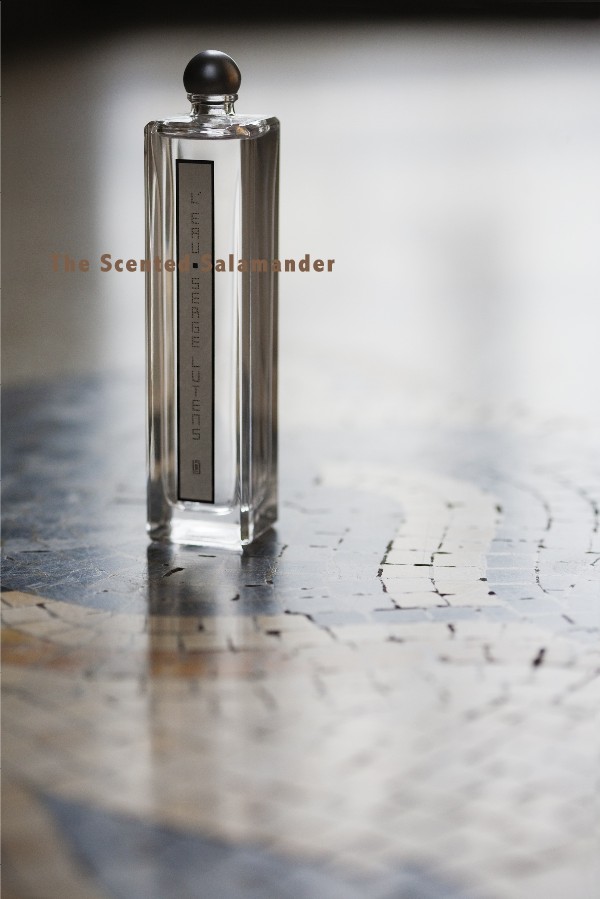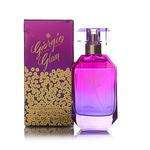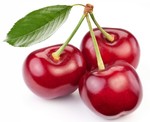L'Eau Serge Lutens (2010): Renewing the Mythology of Perfume: Between Water and Smoke {Perfume Review}

Foreword: This is a review I wrote in April 2010, which I thought I would complete, but re-reading it, I feel there is no need to wait forever for a more complete form. I was a bit weary of my own enthusiasm for the perfume so decided to wait. I might be more down to earth about "L'Eau" today. But why not just be sincere and a little less critical at times? I can always write another review of the same fragrance if I feel the need to, something I am tempted to do not infrequently, but there are time constraints, and new launches!
This is why for instance, I have not included remarks on "Bas de Soie" nor "Boxeuses" nor insights gained from his other home decoration oeuvre, his house in Morocco, although I am not sure it would have brought anything vitally different to my initial take on "L'Eau".
One thing I won't budge on is that this is not essentially or just a "soapy perfume". There are soapy accords, but the perfume actually resolves into a beautiful magnolia composition.
L'Eau Serge Lutens: Renewing the Mythology of Perfume: Between Water and Smoke
Serge Lutens is arguably both an artist and an aesthet who debuted his career in the beauty industry as a hair stylist in his teens then a makeup artist and a photographer of his own creations. His photographs are the works of a perfectionist. He is often reported to have been inspired to turn to perfumery after an olfactory shock derived from the scent of a piece of cedar he picked up one day in Morocco, which led to the creation of Féminité du Bois in 1992. His first ever opus given to the art of perfumery was Nombre Noir in 1982, a composition which he retrospectively has labeled as being "too safe" in an interview he gave to the blog in 2008.
His own brand can be seen to have been centrally motivated by the intrinsic fear of the artist to not go far enough in a certain direction, progressing with a gnawing sense of uncertainty, the concern of being too timid, weighed down by conventions including after a while, the ones the artist creates for himself.
The fact that Lutens does not compose himself his fragrances but rather acts as a creative director and a critic towards them in his work with perfumer Christopher Sheldrake - the perfumer in a more technical sense - may contribute to greater available mental space for creative angst while liberating him at the same time from the thinking-in-the-box pitfalls a professional perfumer might fall into who will have undergone standard training having received more conventional education in the field....
What is remarkable for me in the case of Serge Lutens - and perhaps this is the greatest contribution he has made to perfumery - is how he has managed to impose this quality of artistic angst and sense of personal language to perfumery.
Thanks to him we know that perfumery can be complex, visionary, provocative, a full-on creative statement, but also constitute a coherent body of work.
Perhaps most of all he has taught us that perfumery is something akin to art at times because it is capable of being riddled with self-questioning and challenges instead of promoting just pleasure and comfort for the senses.
Despite the fact that Serge Lutens perfumery is elegant, high-end (but not as overpriced as some other brands playing on the euphorizing reaction of the human brain to astronomic price tags), it also contains an anti-establishment streak which is well-perceived and appeals to people who feel revolt against the system, while in truth these wearers feel alienated enough that this revolt seems to be best expressed by wearing perfume rather than going on a strike or engaging in political action. Perfume may be incense to the gods, but its flip side is that it is also soothing opium to the people. It is thrilling and safe to play with boundaries and transgression while protecting yourself with perfume.
Sparse biographical details bring authenticity to this perception: Serge Lutens has had a difficult, even wounded childhood; he is a self-made person; he mostly avoids the easy, well-oiled workings of Parisianisme by living at the periphery of that world...in Morocco; he willingly acknowledges being something of an hermit in his lifestyle.
When L'Eau by Serge Lutens was launched last fall in Paris it was therefore immediately underscored that there was a seemingly new tone to this fragrance which was accompanied by a more theoretical and pamphlet-like discourse than is usual for Lutens who described the new scent as an "anti-perfume," an expression, I realized retrospectively, which had been used in an interview on The Scented Salamander under the form "non-perfume."
By this he seems to mean that L'Eau is a perfume which brings an olfactory sense of pause in an overly scented world. He reflectively wants to encourage us to reconsider the perfuming gesture itself instead of accomplishing it automatically and with no further qualms about it. But L'Eau is clearly also an "anti-perfume" in the sense that it is "anti-Serge-Lutens" like an auto-immune disease attacking its own immune system. Perfume as insulation from the attacks of the banal and the conformist is not working any more for him. Known for his research on rare and exotic sensations, the meeting of unusual accords - try Cèdre (Cedar) for example to discover a beautiful and original tuberose perfume behind the name - this ever-deepening approach seems suddenly to have come to a halt.
L'Eau Serge Lutens was even advertised by the author himself as the most expensive soap in the world. Soap is in the world of fine fragrances the antithesis of perfume. It denotes a medley of pleasant smells which are usually strongly derivative. Fortunately, a perfume has its own language separate from discursive analysis and in L'Eau you will not find a social pamphlet but rather a mythology of water and purification.
How it Smells
L'Eau au débouché, just smelling it from the cap, appears to be a very transparent and delicate watery floral with some musk and citrus notes.
The perfume opens on transparent iris and white musk going in the direction of white bubbly soap. It evokes at this point, an open tap of water in a scintillatingly white bathroom covered with tiles. There is a certain effervescent quality which is readily perceptible. Then, the fragrance becomes creamier and floral (magnolia), yet going in the direction of a trace of a scent, like a calligraphy traced with water with just a few drops of ink in it. It feels like the vague memory of a scent floating as a mist above a pond.
The composition reveals a systematic work on subtlety. The perfume actually comprises some 60 different accords. Except for the few initial moments which make you think of soap and baby-fresh skin whit a hint of soiled diaper (perfumes need a little contrast to be alive) the composition is really more about an extraordinarily evanescent floral like an ideal vision of a crystal clear lotus.
But perhaps "evanescent" is not the right word as what really takes place is a transmutation or accepted material ambiguity creating a sensation existing somewhere between water and smoke.
I find this sensation-idea extraordinary as it taps so much into an archaic experience of perfume while adding its own symbolic interpretation to it. It is like in an act of meditation where you would try to imagine water leaving its aqueous nature behind as it soars above the water phoenix-like taking flight in the air, transforming itself at some point in the ether into consumed smoke. The perfume however does not feel like a ghost. There is no hint at morbidity and lack of vitality. On the contrary, the perfume seems to draw from the mythological roots and elemental force of water as a symbol of regeneration and purification. You, body and soul, come out purified and more spiritual at the end of the process.
L'Eau is not completely devoid of carnality. One can feel the thickness and flesh-like presence of magnolia petals but in their most immaterial incarnation you could imagine.
This is by far the most subtle opus created by Serge Lutens. All his perfumes reveal the workings of a refined mind but L'Eau Serge Lutens shows it in its purest state or purified form. The author has hinted insistently with this creation at the need for him to start anew with a blank slate, to take a pause. Some people think better while taking a bath.
While the discourse around the scent I found overly ideological and intellectualist, once more perfume reveals that it is "the subtle language" and that words are like burnt and fallen Icaruses next to what perfume can be or suggest when it remembers its subtle body. If this sounds like a theological concept, it very nearly is.
While there has been admittedly a historical process overlapping several centuries which has pushed perfumery into embodying social status and hence richness leading to the creation of ostentatious compositions showcasing rare and weighty ingredients to convey political charisma, there is this origin of perfume as religious expression, and I would say further back in time, as mythology. The mythology of fire and water and air. There is not much indication of a mythology of earth in the latest perfume by Serge Lutens except perhaps by implication in the soaring movement that seems to characterize the trajectory of the scent but then to me it seems to soar above water, yet no doubt, again by implication, water is contained by land.
I think that despite the fact that Serge Lutens insisted on the idea of a soap and a cleansing action, like for most of his perfumes this is just one of the conscious threads for the perfume. There are always much more to his perfumes than what he is willing to tell or remember. His collaboration with Christopher Sheldrake ensures even more ambiguity. There is fundamentally a problem of discrepancy between articulate language which is logical and diachronic and the language of perfume which is much more able to bring together the simultaneous components of a myth.
If you want to smell a perfume that puts to shame most perfumes on the market which were launched for commercial reasons, are copies of others, and have plainly forgotten what perfumery is philosophically about, then you must smell L'Eau Serge Lutens. I had said at first that the concept behind the fragrance seemed to expound the tenets of a sociological treatise on the need to wear less perfume in society. I was not quite right. It is more of a philosophical treatise on perfumery in perfume form.
Those who have lead weights on their feet will probably think and say that the perfume is "wimpy", "puny", "barely there", habitual descriptives by perfume wearers looking for strong character in their fragrances, if not in people. But it is absolutely not the case. It has nothing to do with these categories even.
L'Eau is a perfume that soars towards the sky and the unknown without getting burned, protected as it is by the vitality of water.










I follow a lot of perfume blogs but yours is the most intellectual. Thanks for the great read. I have a sample of L'Eau that I haven't tried because I wasn't excited by the concept but now I am going to dig it out.
Thank you for your kind words.
I have to confess (publicly as it is) that I too waited several months to open L'Eau because I was fearing the worst, perhaps, and also to escape the noise around it. Have some distance.
There is a faint nuance of benzoin/resin in the longer drydown which, I think, contribute to this impression of smoke and water.
I've been going through a "non-perfume perfume" phase over the past year and a half and you've summed-up my sentiments about this area of perfumery, perfectly.
I used "L'Antimatiere" by LesNez last year, before it became too metallic on my skin. But I've really grown to appreciate such scents; scents that conjure-up an olfactory sensation of memory, itself, not necessarily memories. Or of wind-whipping, "clean", purifying smoke, vapors, the idea of negative space (the quality I admired in Serge Lutens' "Gris Clair"; if only the astringent, "wet" phase of the lavender--before it crumbles into dried stuff and smoke in the wind--hadn't been so undeniably masculine to my nose, "Gris Clair" would be my ultimate "go to" fragrance.)
It's this quality of presence, of immediacy in a fragrance that I've noticed people become most emotional about. This quality lingers in older, resinous blends like "L'Heure Bleu" by Guerlain. It's not just about being clean or "natural", it's about living things that are clean or the smell of freshly-bathed life, simmering with heat and moisture, surrounded by a timeless, ageless but pristine place or frozen moment of history and time; like the olfactory interpretation of time travel--a dimensional and physical "fuzzy" place, where time and space float in suspension--not actual places or people visited in time. Time, suspended.
Now, I understand the religious quality some attribute to certain resinous incenses or burnt herbs, like sage. Feeling the cool/warm vapors of scent swirling with brisk air, the hot smoke purified by a cool breeze--is the perfect opportunity for forgetting time and just being; existing "in the moment". Feeling your humanity and mortality, against the incomprehensiple nature of time, space and the frustrating ambiguity of life. I'm thinking I need to test "L'Eau"...
I hope you experience L'Eau too, and report back!